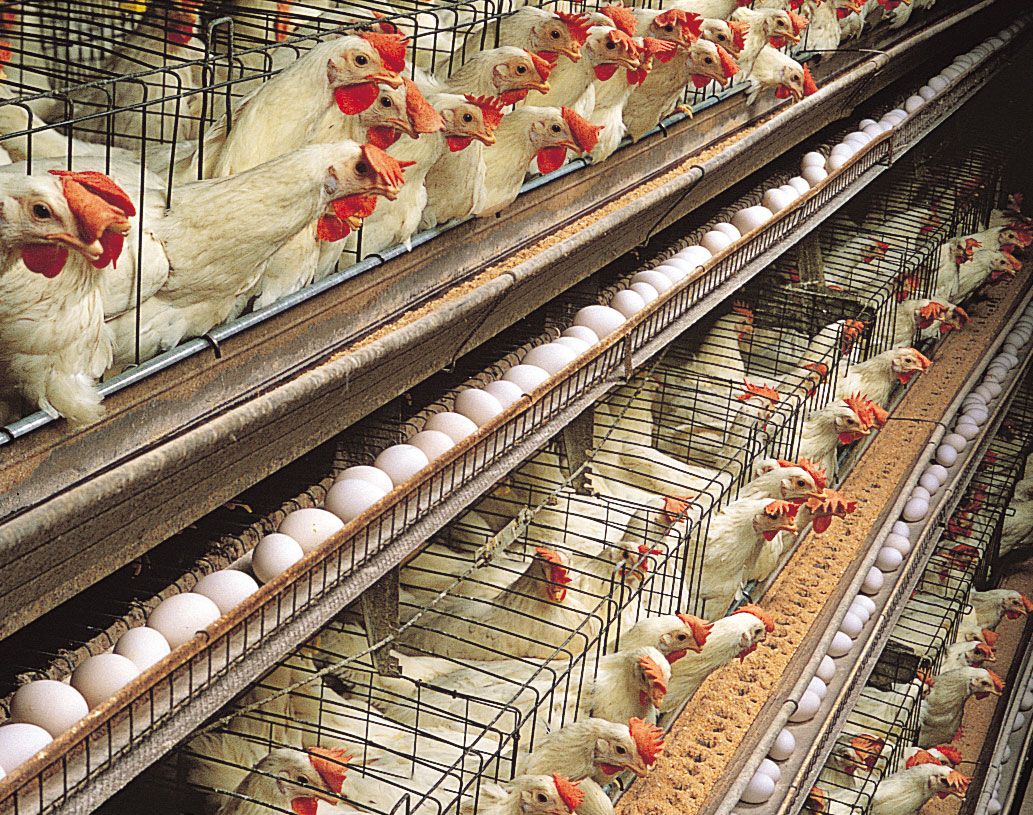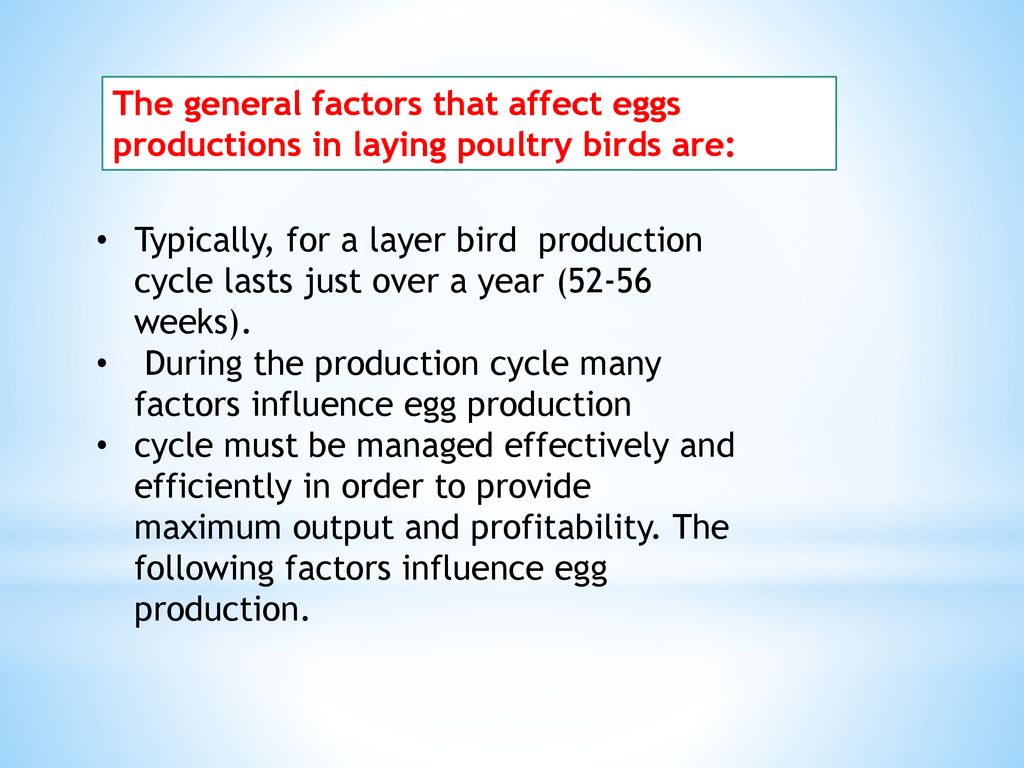Have you ever wondered why chickens lay so many eggs? The answer lies in the practice of chicken husbandry, the art of raising chickens for eggs, meat, and other products. Chicken husbandry is an important part of agricultural production and is often used as a way to supplement income for small family farms. In this article, we will explore why chickens lay so many eggs and how chicken husbandry affects the number of eggs they produce.
Chicken Biology

Chickens are an incredibly prolific species; they lay an average of one egg per day, sometimes more. To understand why chickens lay so many eggs, it is important to understand the biology of the chicken.
- Hormones: Chickens produce two hormones that influence their egg-laying behavior: estradiol and progesterone. Estradiol stimulates the growth and development of the reproductive organs, while progesterone stimulates the production of yolk and eggshell.
- Light Exposure: How much light a chicken is exposed to will affect its egg-laying behavior. Chickens need at least 14 hours of light exposure in order to lay eggs.
- Age: The age of the chicken can also influence its egg-laying behavior. Young chickens will lay fewer eggs than mature chickens.
- Nutrition: Proper nutrition is essential for a chicken to lay eggs. Chickens need protein, carbohydrates, minerals, and vitamins in order to produce eggs.
By understanding the biology of chickens, it is easy to understand how they are able to lay so many eggs. With the right hormones, light exposure, age, and nutrition, chickens can lay an average of one egg per day.
Egg Production

How do chickens lay eggs?
Chickens lay eggs through a process known as oviposition. This process begins with the release of an egg from the chicken’s oviduct into the shell gland, where the egg is coated with a protective layer of calcium carbonate. The egg then passes through the vagina and is laid through the cloaca.
How often do chickens lay eggs?
Chickens typically lay eggs every 24-26 hours. However, the frequency of egg-laying can vary depending on the breed and age of the chicken, as well as the environmental conditions. For example, older chickens tend to lay eggs less frequently than younger chickens, and chickens kept in warmer environments tend to lay eggs more frequently than those kept in colder environments.
How many eggs can a chicken lay?
The number of eggs a chicken can lay varies depending on the breed, age, and environmental conditions. Most chickens lay between 4-6 eggs per week, but some breeds can lay up to 10 eggs per week. Additionally, some breeds are capable of producing up to 300 eggs per year.
Factors Affecting Egg Production

Breeds of Chickens
Different breeds of chickens lay different numbers of eggs. Some breeds lay fewer eggs than others, but generally, egg production is determined by the breed. The production of eggs is further affected by the size of the breed. Larger breeds tend to lay fewer eggs, while smaller breeds generally produce more eggs.
Environment
The environment in which chickens are kept can significantly affect egg production. Chickens should be kept in a clean, well-ventilated space, with plenty of space for them to move around. An overcrowded environment can reduce egg production, as can extreme temperatures.
Nutrition
A proper diet is essential for healthy egg production. Chickens need a balanced diet of grains, vegetables, and proteins. A lack of proper nutrition can lead to fewer eggs being laid, as well as a decrease in the quality of the eggs.
Age
Chickens typically lay the most eggs when they are young. As chickens age, their egg production tends to decrease. This is due to the fact that chickens lay fewer eggs as they get older.
Health
The health of chickens is a major factor in egg production. Sickness and disease can cause a decrease in egg production, as can parasites and other pests. It is important to keep chickens healthy in order to maximize egg production.
Chicken Husbandry
Housing
The housing of chickens should be well-ventilated, secure, and spacious enough so the chickens can move freely. It should provide enough space for the chickens to roost, eat, and drink, as well as enough space for them to be able to scratch and forage.
Feeding
Chickens should be fed a balanced diet of high-quality feed. This should include a protein source, such as soybean meal, corn, or wheat, as well as vitamins and minerals. Chickens should also be given access to grit and oyster shells to help them digest their food.
Health Care
Chickens need regular preventative health care to ensure they are healthy and productive. This includes regular vaccinations and parasite control. Chickens should also be checked for signs of illness such as coughing, sneezing, or diarrhea. If any of these symptoms are observed, a vet should be consulted.
Frequently Asked Questions
How Often Does a Chicken Lay Eggs?
A healthy chicken can lay up to 300 eggs per year, with most breeds laying an average of 4-5 eggs a week. This varies depending on the breed, age, and health of the chicken, but a healthy chicken should lay an egg every 25 hours. In order to produce eggs consistently, chickens need adequate nutrition and a 12-14 hour period of light each day.
What Kind of Environment do Chickens Need to Produce Eggs?
Chickens require a safe, secure, and comfortable environment to produce eggs. This includes adequate shelter, well-ventilated housing, and a sanitary environment. They should be provided with a clean and dry place to lay eggs and should be given access to plenty of fresh, clean water and a nutritious diet. Additionally, chickens should be protected from predators and extreme temperatures. With the right conditions, chickens can lay up to 300 eggs per year.
Do Chickens Need Additional Nutrition to Lay Eggs?
- Yes, chickens need additional nutrition to lay eggs. This includes calcium, protein, vitamins, and minerals.
- Chickens need a balanced diet that has a variety of different grains, proteins, and vegetables to provide them with the necessary nutrients for egg production.
- Calcium is essential for strong eggshells and should be supplemented in the form of oyster shells, eggshells, or crushed limestone.
- Protein should be supplemented in the form of mealworms, crickets, or other insects.
- Vitamins and minerals should be supplemented in the form of a poultry-specific vitamin and mineral supplement.
It is important to ensure that your chickens have adequate nutrition to ensure that they are producing healthy eggs.
Can Chickens Lay Eggs Without a Mate?
Yes, chickens can lay eggs without a mate. This is called parthenogenesis and is a natural reproductive process in which an unfertilized egg develops into a viable offspring. Parthenogenesis has been observed in some species of chickens, but it is very rare. Most eggs laid by chickens without a mate are infertile and will not hatch.
How long does it take for a chicken to produce an egg?
On average, a chicken takes 25 hours to produce an egg. This includes the time taken for the egg to form in the hen’s body, the time spent travelling down the oviduct and the time spent in the shell gland.
- Formation of egg in the hen’s body: 6-8 hours
- Travelling down the oviduct: 10-12 hours
- Time spent in the shell gland: 5-7 hours
The exact time taken to produce an egg depends on the breed of chicken, its age, the environmental conditions and the availability of food. As a general rule, the larger the breed, the longer it takes for a chicken to produce an egg.
Conclusion
Chickens are a great source of eggs and provide a variety of benefits to homeowners, farmers, and poultry producers alike. Through careful management and proper husbandry, chickens can be kept healthy and productive for many years. By understanding why chickens lay so many eggs, poultry producers can make better decisions about their flocks and ensure that their chickens get the proper nutrition and care they need to lay healthy eggs.
